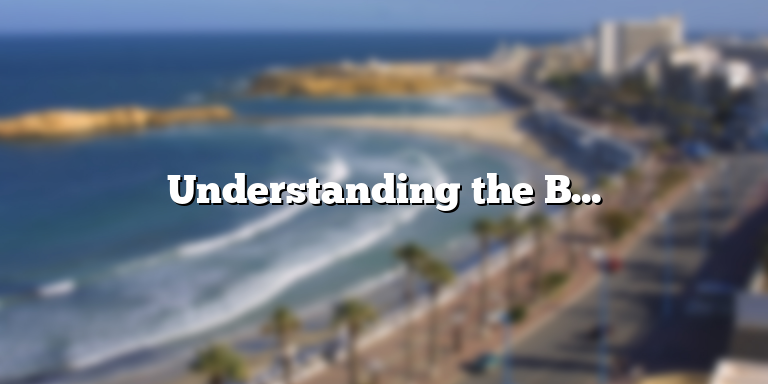
What is a Master of Divinity?
A Master of Divinity (M.Div.) is a terminal professional degree designed to prepare individuals for leadership roles in religious organizations. This degree is typically pursued by those aiming to serve as pastors, chaplains, missionaries, religious educators, or other ministerial roles. The M.Div. program equips students with theological knowledge, practical ministry skills, and the spiritual formation necessary to guide communities of faith.
M.Div. programs usually take three years to complete for full-time students, and up to five years for part-time students. Alongside coursework, students participate in practical training, field placements, internships, and spiritual formation exercises to develop both professional and personal competencies.
Admission Requirements
Admission criteria vary by institution, but most programs require a bachelor’s degree from an accredited institution with a minimum GPA of 2.5 to 3.0. Some programs may also ask for relevant work or ministry experience, letters of recommendation, and prerequisite courses in theology, biblical studies, or ministry. Applicants may also need to demonstrate their commitment to a religious vocation or provide a personal statement explaining their spiritual journey.
Program Specializations
M.Div. programs often allow students to specialize in areas of ministry or theology that align with their career goals. Common specializations include:
- Pastoral Care and Counseling: Focusing on providing spiritual guidance, emotional support, and crisis intervention.
- Preaching and Worship: Developing skills in sermon preparation, public speaking, and liturgical leadership.
- Evangelism and Missions: Preparing for outreach and missionary work in local or global communities.
- Biblical Studies and Theology: Deepening knowledge of scripture, doctrine, and historical contexts.
- Church History: Understanding the development and impact of religious institutions and movements.
These specializations allow students to tailor their education toward their intended ministry or professional focus.
Career Opportunities
A Master of Divinity degree opens doors to a wide variety of career paths in religious organizations and beyond. Graduates can serve as:
- Pastors/Ministers: Leading congregations, preaching, teaching, and providing pastoral care.
- Chaplains: Offering spiritual support in hospitals, military bases, prisons, schools, or corporate settings.
- Religious Counselors: Providing faith-based counseling to individuals, couples, and families.
- Nonprofit Leaders: Working in faith-based or community organizations focusing on social justice, education, or humanitarian work.
- Academics: Teaching theology, biblical studies, or ministry at seminaries, universities, or religious institutions.
The degree also provides a strong foundation for those wishing to pursue further education, such as doctoral studies in theology, divinity, or religious education.
History of the Master of Divinity
The M.Div. degree originated in the early 19th century in the United States, as seminaries sought to prepare ministers with higher levels of education. Harvard Divinity School, established in 1816, is credited with creating the first professional M.Div. program. By the mid-20th century, the degree became the standard requirement for clergy in many denominations.
Initially, the M.Div. curriculum emphasized biblical languages, church history, theology, and preaching. Over time, programs have expanded to include ethics, leadership, pastoral counseling, and social justice, reflecting the evolving needs of religious communities.
Curriculum of a Master of Divinity Program
A typical M.Div. program requires approximately 90 credit hours and includes three main components:
- Core Courses: Cover fundamental theological topics such as Old and New Testament surveys, Christian theology, ethics, and church history.
- Electives: Allow students to explore specialized areas such as counseling, missions, pastoral care, or worship leadership.
- Practical Training: Includes internships, field education, and supervised ministry experience in churches or community organizations.
This combination ensures that graduates have both a strong academic foundation and hands-on experience in ministry.
Skills Developed in an M.Div. Program
M.Div. students acquire a wide range of skills, including:
- Theological Knowledge: Understanding scripture, doctrines, and church history.
- Pastoral Skills: Counseling, leadership, and community engagement.
- Ethical Reasoning: Applying moral principles to real-world issues.
- Communication: Sermon delivery, teaching, and interpersonal skills.
- Cultural Awareness: Understanding diverse communities and faith expressions.
These skills equip graduates to navigate the complexities of religious leadership effectively.
Online Master of Divinity Programs
Many institutions now offer online M.Div. programs, providing flexibility for students balancing work, family, or ministry responsibilities. Benefits include:
- Flexible Schedules: Complete coursework at your own pace.
- Access to Leading Institutions: Learn from top seminaries and divinity schools worldwide.
- Advanced Technology: Interactive platforms for discussion, collaboration, and multimedia learning.
- Lower Costs: Online programs often reduce tuition and associated expenses.
Online programs maintain the academic rigor of traditional programs while accommodating diverse learning needs.
Benefits of Earning a Master of Divinity
- Comprehensive Understanding of Religion: Gain deep knowledge of theology, biblical studies, and church history.
- Diverse Career Paths: Beyond ministry, M.Div. graduates can work in counseling, nonprofit management, education, and social work.
- Community Leadership: Build and guide faith communities, fostering spiritual growth and social support.
- Personal Growth: Develop self-awareness, resilience, and a sense of purpose.
- Enhanced Job Prospects and Salary: M.Div. graduates often enjoy improved career opportunities and earning potential.
Choosing the Right Program
When selecting an M.Div. program, consider:
- Accreditation: Ensures academic standards and recognition.
- Curriculum: Aligns with personal interests and career goals.
- Faculty Expertise: Experienced instructors who offer mentorship and guidance.
- Career Services: Access to job placement, networking, and internships.
- Cost and Financial Aid: Evaluate tuition, fees, and scholarship opportunities.
- Diversity and Inclusion: Programs that embrace cultural, theological, and denominational diversity enrich the learning experience.
Conclusion
A Master of Divinity is a transformative degree that equips individuals with theological knowledge, pastoral skills, and leadership abilities needed to serve in ministry and religious organizations. With a comprehensive curriculum, practical experience, and numerous career opportunities, an M.Div. prepares graduates to make a meaningful impact on their communities and the wider world. Whether pursued in-person or online, the degree is a valuable investment for anyone aspiring to a life of service, spiritual growth, and professional ministry.





